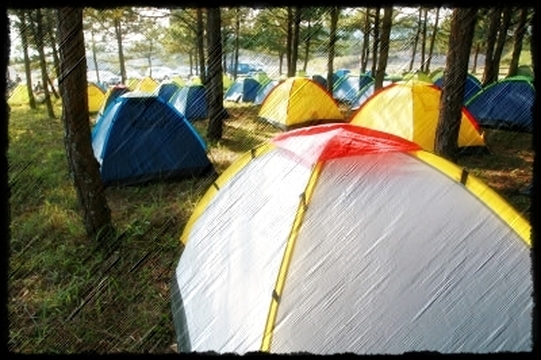 Let’s pretend you’re health isn’t great. Maybe you’re not legally disabled, but you’re not well enough to be dependable at work. As the absences mount, your boss gets frustrated and ends up giving you the boot. Now what? There’s no job, money’s running low and the bills don’t go away. You’ve still got rent to pay, and groceries to buy. You hold on to the security of your home for as long as you can, but the day comes when you can’t keep it it anymore and have to leave.  Maybe you move to a cheaper residence, or maybe you’ve done that already; kept on stepping down until there was nowhere less expensive to move to. The streets are as low as it gets and now they’re what you call home. What if you had to find food from a dumpster? Or what if you were in pain and had to beg money from passers by to be able to buy medicine? What if you had to decide between medicine and food? Seriously, how do you adjust to doing without and effectively learn to survive in poverty? How would it feel to have to shop in something like this? We can pretend there’s a shelter in this scenario. We can also imagine another possibility that goes hand-in-hand with it. What if you arrived at the shelter only to find a long line of other folks who need a place to stay just as much as you do? You could always wander away and hope to find free lodging elsewhere, but what if you live in a city in which the elected representatives have decided that being what you are means you’ll likely be breaking the law? You see, it’s illegal to sleep on the street. It’s also illegal to sleep on a park bench, or under a stairway in an alley. So, where does that leave you? Before, when you were working, maybe it was part of your own income that paid the taxes to install the park benches that you’re not allowed to sleep on. Being homeless and having no money certainly puts a new spin on simple commodities and comforts, doesn't it? You see, now society, and its handlers (often called authorities), consider you to be an undesirable. Why? Well, just examine yourself. You smell pretty ripe from not bathing, your clothes are all wrinkled and dirty, and your teeth are in need of a good brushing and flossing. The authorities and society don’t want to be seeing the likes of you snoozing on their park benches, whether you helped pay for them or not. Now you’re homeless and your past contributions mean little. Now you're an unpleasant liability; a blight on your surroundings. A need to belong... I have never been homeless, but I think one of the most awful aspects of it would be feeling ostracized and unwanted. We are social creatures and belonging to a group who cares for us is something most folks consider to be of great value. For many people, their communities fill that role for them, and for some, their community is the only family they have. That's not to detract from those who are in that category, as family is a matter of the heart, and not always defined by blood. Being homeless doesn't have to mean being alone and unwanted.If you were homeless, what if you found out about a place tucked away in the woods where other homeless folks live, that has privacy, food, and a place to bathe and rest in relative safety? If you happen to be homeless in Lakewood, New Jersey, such a place actually exists. There, the residents live mostly in tents, but have made them as comfortable and homey as possible. Some of them have even put up pretty fences around their tiny yards, and hung decorations on the outsides of their dwellings. So, it's really much more than a place to sleep and get a meal. Let me introduce you to Alex, who actually lives in such a community. Welcome to Tent City...Alex was a professional programmer/Web Developer/DBA who found himself, due to health issues, unable to continue working a steadily paying job; the sort of job that brought him a sizable income and a home of his own. As his health deteriorated, he managed to find work with temp agencies. But, even those jobs became scarce as he was often physically inhibited from putting in a 40-hour work week. That put him at the back of the line, so to speak, and often left him with very few hours worked at low wages. This is his story of how he came to live in Tent City of Lakewood, New Jersey. “I became a resident of Tent City on March 1st, 2013 -- the same day I had to move out of my previous residence due to inability to pay rent. Before Tent City, I had a very cheap room at the *** Motel, also in Lakewood, NJ. “As I saw my eviction coming, I researched my options... I was always reluctant to accept government aid, but I also came to understand that there was no aid to accept. If you go to Social Services in Lakewood and proclaim you're about to become homeless, they'll give you nothing but run-around. “Ocean County, NJ (where Lakewood is located) doesn't have a homeless shelter. They aren't even allowed to refer you to the shelter in Atlantic County anymore -- they just give you a hotline to call, which might (at most) refer you to some church program… “So, after clearing out of my motel room, I went to look for Tent City. I'd seen a few YouTube videos of it beforehand, but I didn't know exactly where it was. I arrived around 7 p.m., just in time for the chapel service. Minister Steve set me up with a sleeping bag in the chapel, which had a wood-burning stove. In 2-3 weeks I moved into a tent of my own -- which didn't have heat, but by then winter was mostly over. “Almost all Tent City residents I know, even the drunks and the addicts, look for work at least some of the time. They go to employment agencies, and they stand in certain places where employers pick them up for a day's construction work. People tend to go through cycles of discouragement -- at the peak of this cycle they make their best effort to get their lives together and find work, but then they get disappointed and surrender to their addictions for a while... “Some residents are in their 60s and 70s. A few are physically or mentally disabled. Some are living off disability or veterans’ benefits (a disproportionately large fraction of TC residents are vets), which isn't enough to afford an apartment. Some work full time, but haven't yet been able to leave Tent City. One very resourceful Tent City resident makes a respectable amount of money collecting scrap metal. Some have a large fraction of their salary deducted because they're behind on child support payments... “Tent City does have a significant turn-around rate -- people come here when they're down on their luck, and leave when they've had full-time work for a while and are able to afford better options. I don't have the exact numbers, but I'd say that of the hundreds of people who've come through Tent City, only a (highly visible) minority stayed more than 1-2 years. A one-bedroom apartment in this area starts at $1,100 a month -- pretty much impossible to afford for one person working at near-minimum wage... “A year and a half ago, a reality TV show from the Netherlands filmed an episode about Tent City (http://www.youtube.com/watch?v=JRHjF9spOBg), and they tried to find a job for one of the Tent City residents (Chris, who still lives at Tent City). They weren't able to... “Lakewood is the fastest-growing major municipality in New Jersey in terms of population, but partly due to the bad economy and unfavorable business climate, job availability couldn't keep up (and even declined). New Jersey ranks as one of the most business-unfriendly states in the nation.(http://FreedomInThe50states.org/overall/new-jersey) “You'll find more of my political and economic opinions about the underlying causes of this poverty and homelessness at http://RonPaulForums.com/showthread.php?417696. “I think there is a great need for tent cities that allow broke and unemployed, or low-income individuals who cannot afford other housing, to survive very cheaply, living in donated $100 tents rather than $1500 per month motel rooms that the government temporarily provides for a lucky few. I think the latter is unfair to the tax-payers, and (just counting the direct housing costs, without the inevitable bureaucratic overhead and other expenses), our Tent City has already saved the taxpayers over $6,000,000, and is currently saving about $2,000,000 a year! “So there's definitely a need for a new Tent City, one that won't be endlessly slandered, sabotaged, and threatened with bulldozers by the municipal government... This stigma of "illegality" has chased away a lot of donors and undermined much community support... "Many of Tent City's problems come from the fact that it's on government land. If the land had been owned by an NGO (Non-Governmental Organization) then things would be much better. The ideal location for Tent City would also be in a less populated area, where the smoke from the wood-burning stoves will not bother any neighbors -- unless of course a better, more cost-effective solution for winter heating can be found. “As a member of the Free State Project, I personally dream of setting up a new Tent City in New Hampshire -- the economically and politically free-est state in the North East, and quite possibly all of U.S.A. But of course, convincing someone who has lived through a New Jersey winter in a tent to move further north will be rather difficult. “Some people use wood-burning stoves in winter; others get by without them. I arrived March 1st, and slept near a stove in the chapel for the first 2-3 weeks, and it still felt pretty cold -- but that's a matter of comfort, not survival. I hear that after awhile you get used to it. Minister Steve Brigham didn't use a stove in his own tent. (He founded and organized the camp in 2005-06, and moved in himself about 4 years ago.) “People previously used propane stoves, but I think the government outlawed those... I hear there are more efficient options than wood-burning stoves, like pellet stoves, which would also alleviate neighbor concerns about smoke, but those cost more money. If the government had been more constructive, rather than destructive, in its dealings with Tent City, we would have had more community dialogue with our neighbors and support, and Tent City could have been a much cleaner and greener place; a positive, voluntary, tax-cutting solution to homelessness that the town could have been proud of! “There are several isolated stories of violence against and among the homeless, but, all things considered, they are very few. You'll find more news stories about homeless people getting hurt that predate Tent City. I think the violent crime rate at Tent City is actually lower than in some impoverished neighborhoods in the inner-cities... “The local press has been horrendously inaccurate and unfair in its dealings with Tent City. Any bad story about any homeless person anywhere is blamed on Tent City, as if in the absence of Tent City, homelessness would magically disappear! People don't think rationally -- without Tent City, there'd be a lot more people living in the streets, and thus a lot more garbage, misery, and violence. TC provides access to sanitation, garbage collection, and, most importantly, community support. “As with the alcohol prohibition of the 1920s, the War on Drugs is doing a lot more harm than good... It makes recreational drugs illicit, more concentrated and dangerous, untraceable for quality control, and any sales disputes cannot be solved through any open recourse -- which is what leads to violence. “The police harass Tent City residents on regular basis. In one recent incident, they came to Tent City and fired five live rounds (the only time anyone remembers any gunfire at Tent City), wounding a runaway dog and leaving it to suffer and die. The police sometimes even harass supporters / volunteers who come to drop off donations. It should be remembered that Tent City residents still pay taxes -- payroll tax, sales tax, cigarette tax, etc. As I satirically stated in one of my Town Hall speeches, the overwhelming majority of theft and violence at Tent City is perpetrated by the Blue Light Gang (i.e. the police). “According to a census that the government conducted on May 1st of this year (as a step toward shutting down Tent City), there are 122 residents. “This number increased from about 80-90 in the beginning of the year, as many people (including those who had previously left Tent City) jumped on board at the last minute before the census to qualify for the "one year of free housing". The government's plan is to bribe everyone to leave Tent City so that they could bulldoze it and make it impossible for people to return. “Lakewood passed an ordinance that essentially outlaws homelessness, though Tent City residents are exempt until they get their year of housing. “Needless to say, I personally refused to be a part of that agreement. I will stay on this land, claiming the illegitimacy of public property and the right to homestead. I don't expect this so-called civil disobedience to accomplish anything, but I'll do it anyway, and confront the anti-homelessness laws head-on. “Tent City is not particularly clean - you'll find lots of garbage around. Then again, there are poor neighborhoods where just as much litter can be found. Some parts of the camp are remarkably clean and even picturesque, and others are a mess; it really depends on the individuals living in any particular "sub-neighborhood" of the camp. “I hear that Tent City was cleaner a few years ago, when it was smaller and there was a core group of people willing to do some work to keep it clean, while people who didn't clean up after themselves were ostracized and sometimes driven out. There used to be a vegetable garden, a little farm with a goat, etc. There were also more permanent structures, which the government forced to be demolished. Then the government came after Minister Steve, arresting him twice on charges of "witness tampering" -- he tried to evict one of the "bad apples" (I think it was for theft), and she (as I understand the story) coincidentally turned out to be a drugs snitch for the government. Now he's not allowed to evict anyone, and the ratio of hard workers to lazy bums who don't clean up after themselves becomes more and more unfavorable. “What I find most visually unappealing are the dirt roads leading into Tent City, which often have puddles and get very muddy. The government refused to issue a work permit to a volunteer effort to get those roads paved. “There are four regularly-- serviced porta-johns at Tent City. Along with garbage pickup, they are the only municipal services that Tent City receives directly. Being a tax-victim-funded government monopoly, there were times when garbage pickup services have been temporarily withheld as leverage against us. “Tent City has a very adequate shower room with a stove and hot water heated by propane. Shower water comes from the underground water pump, which is powered by a gasoline electric generator (we are completely off-the-grid: power, t-comm, water, and sewer). I also use this propane-heated water to do laundry in a large plastic bucket, and then hang it on a clothesline to dry. (Rain makes for an acceptable added rise cycle.) “The groundwater from the pump is said to be non-potable (not safe to drink), so Tent City residents drink donated bottled water -- which is always in short supply. Trying to pull my weight whenever possible, I used to go outside the camp and fill a few 2-liter water bottles with tap water, to bring back to the camp for my own consumption. Now the problem of drinking water scarcity has been reduced, thanks to a Tent City supporter (Jeff "the Chef" Doucette). He bought two 120-gallon water tanks -- one with a tap is kept at Tent City, and one is used to transport the water on his truck to refill the first.” Many thanks to Alex for sharing his view of the inside of Tent City. His commentary doesn’t strike me as bitter, but it does ring of practicality and belief that a better method exists to help the homeless.
For many people, the problem isn’t a matter of not wanting to help. It’s a matter of not really knowing what to do. Most people want to make a significant and long-term difference. There are over 630,000 homeless Americans. Of those, it’s estimated that 40% of them are families with children. Our elected officials have spent millions of dollars of Americans’ monies via tax collection, and it hasn’t stopped the problems that come with being homeless. If government intervention worked, we’d not be seeing the numbers of American homeless rise by as much as 10% annually, according to the latest national estimates. A significant change can happen today, beginning with each of us. We can put a different slant on our perspectives of the homeless and how to help them. Let’s start by remembering the wonderful opportunities in volunteering. Volunteering means it happens of your own free will. It means the government isn’t involved and no taxes are collected for it. It means much more can be done with much less when bureaucrats keep their hands away from it, unless they're operating as a volunteer as well. There are some who say that if a people are not forced to help, they won’t. I say those with that opinion are either lying, or stupid. I’ve lived in this country for most of my life and found it to be one of the most generous populations on the planet. There will always be those who will never want to help, and it's their right to choose. Thankfully, they're the minority. And, should the time ever come when it's their turn to be in need, they might not get it. (Karma can have sharp teeth, and we reap what we sew.) If it's your desire to be a part of the solution, rather than part of the problem with homelessness, here are a few links to help you get moving. Destiny's Bridge: destinysbridge.com Free State Project: freestateproject.org Other than my profile photo and the photo of Alex, all other photos in this article are via freedigitalphotos.net.
6 Comments
|
Follow me on...Site LinksThanks for sharing!Good for what ails ya!More popular postsArchives
June 2018
|



 RSS Feed
RSS Feed


